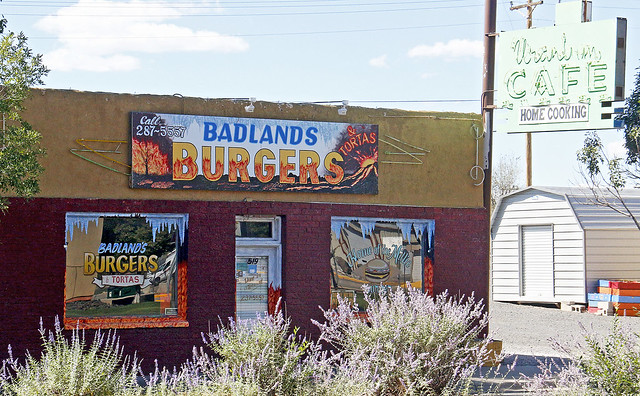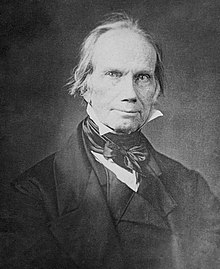In the world of modern conservative politics, that's as true of George H.W. Bush as of John McCain. And, facts are stubborn things.
"Opportunism" could be described as a byword, even a one-word summary, for Bush's political career. Yes, a certain degree of opportunism is part and parcel of democratic politics, but it doesn't have to be, and shouldn't be, the central theme.
Besides, the mainstream media which insists we must mourn has American Exceptionalism reasons for saying that.
Let's start with this Tweet from Corey Robin:
How George H.W. Bush lives on: The Willie Horton ad that helped get him elected was made by Floyd Brown. After '88, Brown formed an organization to get Bush nominees onto the courts. One of those nominees was Clarence Thomas. The name of that organization was Citizens United.— corey robin (@CoreyRobin) December 1, 2018
This will lead to Bush's opportunism.
Behind that was the whole schmeer of Bush's 1988 presidential run, which was a parade of opportunism.
That included an oversolemnized Pledge of Allegiance, part of Bush's attacks on and mocking of Mike Dukakis for defending the First Amendment. That was followed by the Willie Horton ad, which attacked an early release program for Massachusetts felons.
Before that, Bush's GOP convention was itself laden with opportunism and pandering. That's where he said "Read my lips, no new taxes." That's where he nominated airhead Dan Quayle as his Veep. And speaking of the Schmuck Talk Express, McCain said of him:
"I can't believe a guy that handsome wouldn't have some impact."
Well, there you go. The balloon of McCain gets further punctured with that.
Back to the main thread.
Bush hired the Lee Atwater who ran that ad, who pushed him into the Pledge of Allegiance dust-up. I have no doubt that Atwater was behind some of the rumors about Kitty Dukakis, claiming that she was involved in flag-burning years back.
Speaking of? Don't forget Bush's weaseling on the Flag Protection Act of 1989, written in response to Gregory Johnson's flag-burning outside the the 1984 Republican National Convention. Bush let the bill become law without his signature.
This and the Pledge fracas — and their campaign success — led to further coarsening of national politics by Republican candidates and consultants, above all, to politically weaponizing patriotism and the flag. Arguably, it led ultimately to "birther" claims against Barack Obama.
This and the Pledge fracas — and their campaign success — led to further coarsening of national politics by Republican candidates and consultants, above all, to politically weaponizing patriotism and the flag. Arguably, it led ultimately to "birther" claims against Barack Obama.
His opportunism had started decades before that.
He became pro-life to get Reagan's nomination as Veep. He also swallowed the previous truth of calling Reagan's pee-down "voodoo economics."
But, as TruthOut reminds and I had forgotten, he so ingratiated himself with Reagan to be part of his October Surprise against Carter. Consortium News has more.
But, as TruthOut reminds and I had forgotten, he so ingratiated himself with Reagan to be part of his October Surprise against Carter. Consortium News has more.
He eventually showed that he thought deficits did matter when he told us to "read his hips" as he raised taxes.
He was right. But, he never called out his Secretary of Defense, Dick Cheney, when Darth said years later that "deficits don't matter."
He did resign from the NRA, some time after it started going wingnut but well before it got as wingnut as today. And, he didn't speak out in the 20-plus years after that 1995 resignation. Plus, back to 1988. He was opportunistic in accepting an NRA life membership that year.
Even in foreign policy, Bush was an opportunist of sorts. Not only was he slow in the pivot from Gorbachev to Yeltsin, he was slow to recognize the new de facto independence of the Baltic States. (The U.S. continued to recognize their de jure independence from 1940 on.) This led to my writing a letter to the White House.
I will give him credit, overall, for how he handled the end of the Cold War. And, if he had been re-elected, he might have actually given us a better Cold War dividend than Slick Willie Clinton did. Among other things, Bush might have honored the NATO pledge to Gorbachev to not expand eastward.
That said, what he gave Gorby with the right hand, he took away with the left.
But, I digress.
On the original Iraq War, he may not have deceived the public as much as his son a dozen years or so later, but deceive he did. We still don't know just what April Glaspie told Saddam Hussein about invading Kuwait, and on what authority, before she was recalled. Nor do we know ow much Bush himself knew about the incubator babies lying campaign Hill and Knowlton cooked up for the Emir of Kuwait.
I will give Poppy credit for one seemingly non-opportunist move in foreign policy. He threatened to cut off loan guarantees to Israel over Palestine/West Bank settlement housing, then stood by that threat. Philip Weiss at Mondoweiss offers more, and how it may have cost Bush re-election.
I will give him credit, overall, for how he handled the end of the Cold War. And, if he had been re-elected, he might have actually given us a better Cold War dividend than Slick Willie Clinton did. Among other things, Bush might have honored the NATO pledge to Gorbachev to not expand eastward.
That said, what he gave Gorby with the right hand, he took away with the left.
But, I digress.
On the original Iraq War, he may not have deceived the public as much as his son a dozen years or so later, but deceive he did. We still don't know just what April Glaspie told Saddam Hussein about invading Kuwait, and on what authority, before she was recalled. Nor do we know ow much Bush himself knew about the incubator babies lying campaign Hill and Knowlton cooked up for the Emir of Kuwait.
I will give Poppy credit for one seemingly non-opportunist move in foreign policy. He threatened to cut off loan guarantees to Israel over Palestine/West Bank settlement housing, then stood by that threat. Philip Weiss at Mondoweiss offers more, and how it may have cost Bush re-election.
And, I haven't even mentioned Jennifer Fitzgerald yet. Who doesn't even have a Wiki entry. BUT ... a new in-depth biography of Barbara Bush says that Barbara had suicidal thoughts over the affair.
Nor have I mentioned all the Iran-Contra pardons. Robin starts a mini-thread with this:
Nor him being the president who launched the trend of post-presidential speechifying for big bucks.
George H.W. Bush was a man who liked to give the appearance of decency, as part of New England Eastern Establishment noblesse oblige. Whether he went beyond appearances is on the table.
Beyond his leaving the NRA, there's no indication that Bush apologized for the Willie Horton ad, the First Amendment attacks via the Pledge, or for inflicting Clarence Thomas on the U.S., and Bush's "most qualified at the time" whopper.
Finally, he or whatever staffer ran his Twitter, supported Kavanaugh in what is reportedly his last Tweet.
==
Bonus: I had forgotten about my long-ago trip to Tsarskoe Selo, where an ex-spook gave me a very interesting conspiracy theory tale about Bush green-lighting Saddam Hussein's invasion of Kuwait. Here's the details.
Nor have I mentioned all the Iran-Contra pardons. Robin starts a mini-thread with this:
One of the things I've noticed over the years is that people don't know what a catastrophe Iran-Contra was, from the murderous war it funded against the Nicaraguans (all those suburban white boys there) to the way it featured the president breaking the law to the total subversion https://t.co/H2t1uli6Cb— corey robin (@CoreyRobin) December 1, 2018
Others have commented as well.
And, as of Jan. 20, 2019, Sy Hersh has a new piece detailing how Poppy was hips-deep if not deeper on selected aspects of Iran-Contra (but, with fixers of his as well, deplored Ollie North's involvement) and other skullduggery.
And, as of Jan. 20, 2019, Sy Hersh has a new piece detailing how Poppy was hips-deep if not deeper on selected aspects of Iran-Contra (but, with fixers of his as well, deplored Ollie North's involvement) and other skullduggery.
I noted on Twitter this was a major step in the loss of backbone, and drift rightward, of national Democrats, in that they refused to discuss impeachment of Reagan, or even discuss discussing it, instead accepting the whitewash by Reagan's new chief of staff, Howard Baker.
Baker, in turn, while knowing it would eliminate him from the 1988 prez race, indicated his work was for the good of the country, which was itself a lie. Add to it all of Bush's pardons as he left the White House, and you have further whitewashing.
I had forgotten, in his slot between Nancy Reagan's "Just Say No" and Bill and Hillary Clinton's superpredators, Bush's role in ramping up the War on Drugs. Which again, like most posturing on that, and on "getting tough on crime" in general, is opportunism. And with Bush, the opportunism was rank:
I had forgotten, in his slot between Nancy Reagan's "Just Say No" and Bill and Hillary Clinton's superpredators, Bush's role in ramping up the War on Drugs. Which again, like most posturing on that, and on "getting tough on crime" in general, is opportunism. And with Bush, the opportunism was rank:
This is a major part of Bush’s legacy. It’s what his War on Drugs did to just one person. But it shows the human costs of that war in miniature detail. A high schooler was lured to the WH to sell crack and spent 7+ years in prison, so that the President could make a point on TV.— Joshua Clark Davis (@JoshClarkDavis) December 1, 2018
That's from this thread.
Speaking of the War on Drugs, there was also Bush throwing Noriega under the bus when expedient, and the unnecessarily civilian and military deaths in Panama as a result.
Nor did I originally mention the assassination of Orlando Letelier in DC in 76 when Bush was running the CIA, and our Pinochet-befriending cover-up. (And, surely, by this time, Bush knew the truth about the assassination of Allende.)
Speaking of the War on Drugs, there was also Bush throwing Noriega under the bus when expedient, and the unnecessarily civilian and military deaths in Panama as a result.
Nor did I originally mention the assassination of Orlando Letelier in DC in 76 when Bush was running the CIA, and our Pinochet-befriending cover-up. (And, surely, by this time, Bush knew the truth about the assassination of Allende.)
Nor him being the president who launched the trend of post-presidential speechifying for big bucks.
George H.W. Bush was a man who liked to give the appearance of decency, as part of New England Eastern Establishment noblesse oblige. Whether he went beyond appearances is on the table.
Beyond his leaving the NRA, there's no indication that Bush apologized for the Willie Horton ad, the First Amendment attacks via the Pledge, or for inflicting Clarence Thomas on the U.S., and Bush's "most qualified at the time" whopper.
Finally, he or whatever staffer ran his Twitter, supported Kavanaugh in what is reportedly his last Tweet.
==
Bonus: I had forgotten about my long-ago trip to Tsarskoe Selo, where an ex-spook gave me a very interesting conspiracy theory tale about Bush green-lighting Saddam Hussein's invasion of Kuwait. Here's the details.








